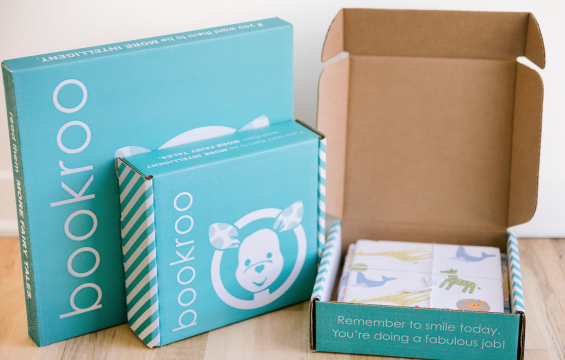Welcome back to the second installment of our guide on selecting the ideal homeschool co-op for your family. We now examine key factors that shape your homeschooling journey: the size and community, its curriculum and teaching methods, and the required schedule and commitment. These elements are essential in influencing your educational experience.
If you haven't read Part 1 of this series, check it out here! Choosing the Right Homeschool Co-op: Part 1
Co-op Size and Community
When delving into the topic of homeschool co-op size and community, we're not just talking about numbers; we're talking about the atmosphere, the dynamics, and the potential for personal growth within a group setting.
Smaller Co-op
A smaller co-op typically means that each family, and therefore each child, has a spotlight. Individual achievements can be celebrated community-wide, and struggles can be addressed with a collective effort. The environment in a small co-op tends to be one where nurturing and support are readily available. Children might find it easier to form deep, lasting friendships. For families new to homeschooling, this can be a comforting transition. It offers a safety net as they navigate their educational journey.
Smaller co-ops can also provide a more customized approach to learning. Instructors can tailor lessons to cater to individual learning styles and paces, potentially offering a richer educational experience. For children who may feel lost in the crowd, this affords them the space to find their voice and confidence.
Larger Co-ops
On the other hand, a larger homeschool co-op brings with it the vibrancy of a mini-society. Such settings often allow for a more extensive range of activities, clubs, and specialized classes due to the wider pool of resources and parental skills. This diversity not only exposes children to a variety of subjects and hobbies but also to a spectrum of cultures and viewpoints, preparing them for the broader world.
Also in a larger co-op, students have the opportunity to learn to navigate complex social dynamics. Similar to what they might encounter in traditional school settings or later in the workplace. The variety in age groups, backgrounds, and abilities can foster a child's adaptability and empathy.
However, the bustling nature of larger co-ops can be daunting for some families. With more people and activities, there's a higher demand for organization and structure. This can sometimes lead to a less personalized experience. The sense of community may require more effort to cultivate, as relationships might not be as naturally close-knit as in smaller groups.

What Works For You
It's important to note that there's no one-size-fits-all when it comes to co-op size. What works for one family might not work for another. Reflect on your child's personality and needs. Do they seem to engage more in smaller groups where familiarity breeds comfort? Or do they blossom in larger settings, where the energy of the crowd is exhilarating? Your child’s disposition and social needs will be significant indicators in this decision.
In summary, the co-op size will profoundly affect your family’s homeschooling experience. It will shape not just academic growth but social and emotional development as well. Whether you lean towards the intimacy of a small co-op or the diverse opportunities of a larger one, ensure that the size aligns with your family's values, your child’s needs, and your educational goals. With thoughtful consideration, you'll find the right co-op community to support and enrich your homeschooling journey.
Curriculum and Teaching Style
When considering a homeschool co-op for your child, delving into the curriculum and teaching styles on offer is not just a step but a leap into the educational ethos of the community. This exploration is crucial because it aligns with the heart and soul of what you envision for your child’s learning journey.
Bookroo's mission is to enable and empower parents to build their children's book collections in an affordable and exciting way through curated monthly book deliveries. We send beautiful collection editions of our favorite books from publishers, that not only will families want to read again and again, but also look stunning on your shelf. Book boxes are geared for ages 0-12.
Curriculum
Curriculum choices can significantly dictate the trajectory of your child's education. A classical curriculum, grounded in the trivium of grammar, logic, and rhetoric, may suit a family looking for a time-tested, rigorous academic structure. On the flip side, a progressive curriculum that is more student-centered might appeal to those who value critical thinking and creativity over traditional academic standards. For families with strong religious beliefs, a faith-based curriculum might be non-negotiable, integrating spiritual lessons with academic learning. An eclectic approach could be the best fit if you wish to mix and match elements from various educational philosophies. This would allow you to create a customized learning path that flexes with your child's evolving interests and needs.
Being able to tailor and mix and match our curriculum is one of our family's reasons for homeschooling. You read more about why in my article “The Factors Shaping Our Homeschooling Choice.”
The degree of adherence to state standards can also be a determining factor. Some co-ops follow these standards closely, which can provide a sense of security and a clear benchmark for academic progress. Others may offer more flexibility, allowing for a personalized learning pace and the opportunity to dive deeper into areas of interest or talent.
Ivy Kids Kits is an award winning and well-established subscription box company for children ages 3-8. Ivy Kids creates monthly book-inspired, activity packed educational kits. Each Ivy Kids kit includes a carefully selected, highly rated children's book and over 12 fun, creative, and unique hands-on activities that promote the development of math, science, literacy, engineering, and art skills through play and exploration. Inside an Ivy Kids kit there are board games, arts and crafts, science experiments, projects, math manipulatives, story characters and so much more. Everything you need to read, play, create and learn is included in the kit and conveniently delivered monthly!
Teaching Style
As for teaching styles, they are the vessel that carries the curriculum’s content to the shores of the student’s mind. A co-op that emphasizes hands-on learning could be invaluable for kinesthetic learners who grasp concepts more firmly through doing and experimenting. Lecture-based education might resonate with auditory learners who can absorb and contemplate through listening and discussion. Group projects foster teamwork and social skills, beneficial for students who thrive on collaboration and peer engagement. If your children require a quiet environment to focus or excel when self-directed, opportunities for individual study can be crucial.
The inclusion of experiential learning opportunities such as field trips and community service projects can vastly enrich the educational experience. These activities not only break the monotony of classroom learning but also ground academic concepts in real-world experience. This makes learning tangible and often more comprehensible.
It’s paramount to ensure that the co-op’s curriculum and teaching styles do not just teach but reach your child. They should cater to their unique way of understanding the world, thus unlocking the full potential of their learning capacity. Inquire, observe, and even participate in trial sessions if possible to get a true feel for how the co-op operates. The way they implement their curriculum and conduct their teaching will give you a window into whether your child will merely learn or truly thrive within their walls.
Use code INCREDIBLE at checkout for 10% off
Co-op Schedule and Commitment
When examining the schedule and commitment aspects of a homeschool co-op, you are essentially mapping out how this decision will fit into the tapestry of your family's daily life. The rhythm of the co-op's meetings will become the rhythm of your child's education and social interaction. A weekly schedule may provide a structured, steady pace of learning and community engagement. This will of course reinforce consistency and routine in your child's life. This can be particularly beneficial for subjects that build upon each previous lesson, like mathematics or foreign languages.
However, this regularity comes with a caveat: it demands a significant slice of your family's time pie. With a weekly commitment, you'll need to consider transportation, preparation time, and any other associated activities that come with each co-op day. A bi-weekly or monthly schedule might offer more breathing room, reducing the pressure on your family's calendar. But it could also mean less frequent social interactions and educational continuity for your child.
Commitment
Parental involvement is the backbone of most co-op structures. It's a collaborative effort, and your role could vary widely from performing after-class cleanup to teaching a class to assisting with event planning. Some co-ops have a more laid-back approach to parental contributions, while others are built on a foundation of shared responsibilities. Gauge your own capacity and desire to engage at this level. It's not just about volunteering time; it's about enriching the co-op community with your presence and skills.
Balancing the benefits of the co-op against your personal schedule is a tightrope walk. It's vital to be realistic about how much time you can and are willing to commit. Overcommitting can lead to burnout and frustration, but undercommitting can mean missing out on the full benefits of the co-op experience. If you're interested in how I balance being a SAHM and homeschool teacher, you can read my article about mastering the art of balanced roles.

Master the Art of Balancing SAHM and Christian Homeschooling Roles with Ease
In summing up, the co-op’s schedule and the commitment required from you are not just logistical details—they are integral to the functioning of the co-op and the satisfaction of your family's homeschooling experience. Aligning these factors with your family’s capacity and educational goals is essential. By doing so, you can ensure that your chosen homeschool co-op not only fosters your child’s academic and social growth but also harmonizes with your family’s lifestyle and values.
Conclusion
In conclusion, selecting the right homeschool co-op involves more than just academics; it's about finding a community that feels like an extension of your family. We've discussed the impact of co-op size, curriculum choices, and the commitment required to ensure a thriving educational environment for your child.
But the journey doesn't stop here. In Part 3 of our series, we'll tackle the practicalities of membership costs and how to budget for them. We'll also consider how a co-op's values and beliefs align with your own, and the critical role of parental involvement. Understanding these will be key to choosing a co-op that fits not just your child's educational needs but also your family's values and financial realities.
Join us in the next installment to navigate these considerations with confidence, as we help you take the next steps towards a fulfilling co-op experience for your entire family. Read part 3 now!








